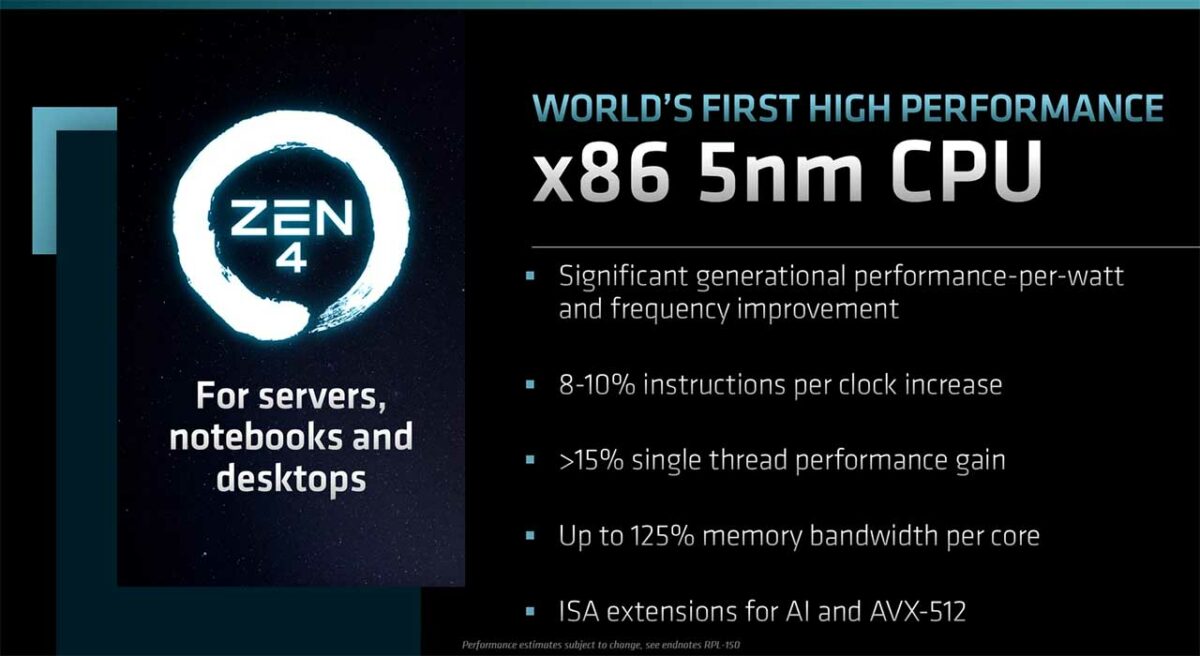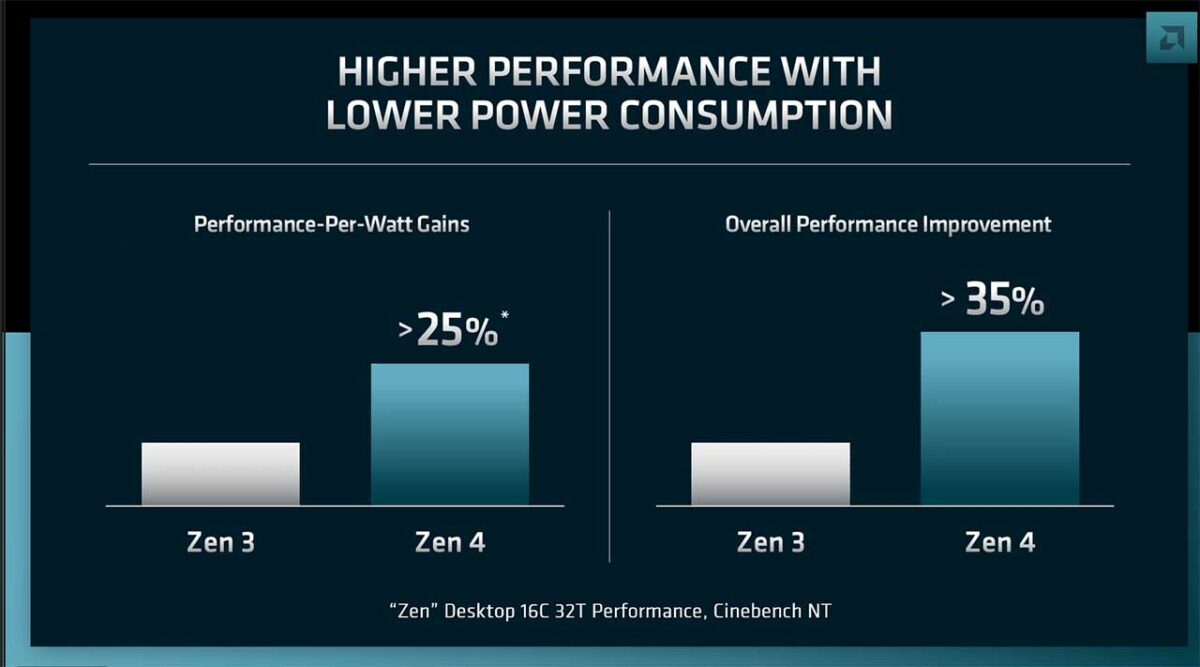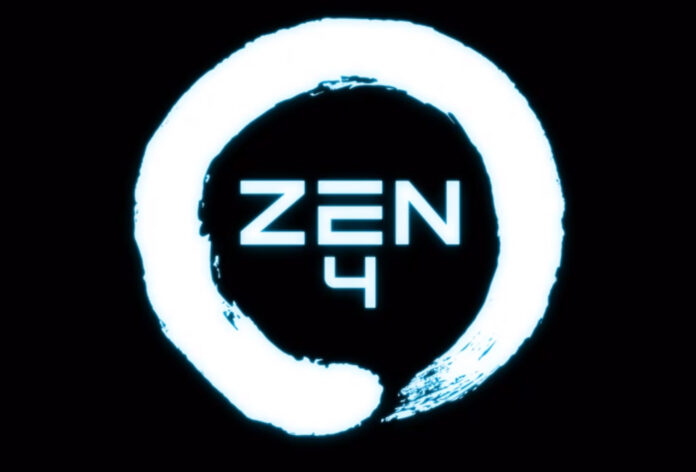AMD has been guarded on next-generation Zen 4 performance even though launch is scheduled for autumn. At today’s Financial Analyst Day, AMD CTO, Mark Papermaster, offered a few more details on generational uplifts.

Built on an advanced 5nm process, the standout figure in the above slide is the 8-10 per cent instructions per clock (IPC) increase over present Zen 3. And by standout we actually mean underwhelming. You may recall AMD citing a 19 per cent IPC uplift when moving from Zen 2 to Zen 3.
The single-digit increase between Zen 3 and Zen 4 is all the more glaring when appreciating AMD’s 5nm process is not yielding any more cores for desktop Ryzen chips. Being even handed, IPC is but one measure of overall performance, and AMD is able to claim a >15 per cent single-thread performance gain by dint of higher frequencies.
AMD’s strategy this time around is geared more towards datacentre-optimised Epyc and notebooks, and we know this because next-generation Epyc ‘Bergamo’ is to be offered with 128 cores and 256 threads, or double that of existing Epyc Milan. That would arguably not have been possible if Zen 4 IPC uplift had been purposely designed to hit 25 per cent. Optimising for power and frequency also ought to play well for the next iteration of mobile GPUs, enabling the company to increase performance at key TDP levels.

It’s curious AMD details a slide pertaining to higher performance-per-watt gains when we know the desktop Ryzen 16-core, 32-thread Zen 4 chip will carry a much higher TDP than, say, the compared Ryzen 5950X. It’s likely the company is using an energy-efficient Zen 4 processor than the headline 170W TDP part. If that’s true, the comparison is somewhat misleading.
Nevertheless, Zen 4 includes a larger cache footprint, specific AI extensions – it’s too early for them to be from Xilinx – and AVX-512, meaning it’s a more well-rounded design. An architecture designed to meet AMD’s growing ambitions across disparate markets rather than a high-performance play in one or two, time will tell if Zen 4 pleases enough customers.

